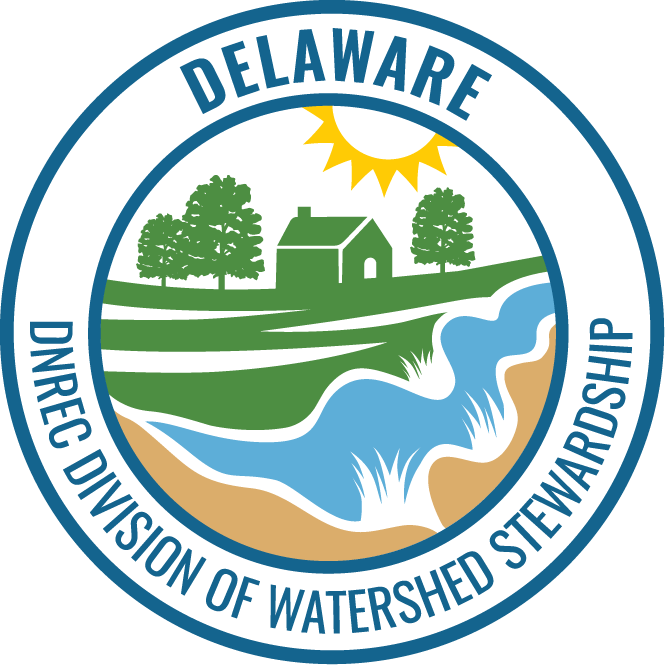
Facebook Twitter Instagram YouTube
Written on: September 16th, 2024 in Education and Outreach, Wetland Research
By Elizabeth Long, Delaware Sea Grant Hi everybody! My name is Elizabeth Long, and for the past few months I have been working with Delaware Sea Grant as their Marine Debris intern! I graduated from Muhlenberg College in 2021 with a BS degree in Biology. After graduation, I moved out to Catalina Island off the […]
Written on: May 20th, 2024 in Education and Outreach, Wetland Restoration
By Alison Rogerson, DNREC’s Wetland Monitoring and Assessment Program For any homeowner with a dock leading out to tidal waters in Delaware or any boat angler who likes to put in at a public ramp and go crabbing, fishing or just boating around the Inland Bays, you are familiar with the issue of rivers shoaling […]
Written on: May 17th, 2024 in Education and Outreach, Natural Resources, Wetland Animals
By Ashley Tabibian, DNREC’s Shellfish and Recreational Waters Program What do you think of when you think of oysters, clams, and mussels? For being so small, they are somewhat complex creatures with almost superhero like abilities. Do you think of how nutritious they are? According to WebMD, shellfish are low in calories, high in protein […]
Written on: September 22nd, 2023 in Education and Outreach, Natural Resources
By Olivia Allread, DNREC’s Wetland Monitoring and Assessment Program Magical forest, walking trees, mangals, snorkeling roots – this habitat can be called by many names. With a worldwide distribution in tropical to warm temperature latitudes, mangrove forests are not only incredible ecosystems, but a key player in climate resiliency and human livelihood. If you’ve been […]
Written on: July 26th, 2023 in Natural Resources, Wetland Animals
By Alison Rogerson, DNREC’s Wetland Monitoring and Assessment Program Summer means warm weather (ok hot), spending more time outside, exploring the woods, wading in streams, and fishing. This makes it more likely that you will encounter one of Delaware’s 14 species of turtles! Safe to say that there is a turtle in every type of […]
Written on: March 24th, 2023 in Natural Resources, Wetland Research
By Kenny Smith and Alison Rogerson, DNREC’s Wetland Monitoring and Assessment Program The most widely recognized migrations in the world involve animals: the red knot, monarch butterflies, salmon, wildebeest. But there is another migration happening everyday along the U.S. coastlines: marsh migration. This migration is not driven by the seasons, or daylight but is instead […]
Written on: March 24th, 2023 in Education and Outreach, Natural Resources
By Eddie Meade, DNREC’s Shoreline and Waterway Management Section If you head to the Delaware Beaches mid-March, you may notice something along the dunes. Rows and rows of young Cape American beachgrass (Ammophila breviligulata) where there previously were none. Early every spring, the Shoreline and Waterway Management Section puts out a call to action and […]
Written on: December 19th, 2022 in Wetland Assessments
By Alison Rogerson, DNREC’s Wetland Monitoring and Assessment Program In this sixth and final installment in my Wetland Status and Trends blog series, I’m wrapping it all up with management recommendations. We came, we mapped, we calculated, we reported, now what? What comes next for wetland management and conservation in Delaware based on this project? […]
Written on: September 26th, 2022 in Wetland Animals
By Kayla Clauson, DNREC’s Watershed Assessment and Management Section Wildlife cameras are a tool that scientists can use to collect wildlife field data. Discussed previously in a past blog post, wildlife cameras allow scientists to collect field data secretly, without being there, round the clock. This wildlife habitat utilization monitoring is part of a salt […]
Written on: May 25th, 2022 in Wetland Assessments, Wetland Restoration
By Erin Dorset, DNREC’s Division of Fish and Wildlife The Inland Bays are a beautiful and beloved part of Delaware, containing about 20% of the state’s wetlands. Those wetlands are important economically, culturally, and ecologically, as they improve water quality, support commercial and recreational fisheries, support tourism, absorb flood waters, and provide crucial feeding and […]